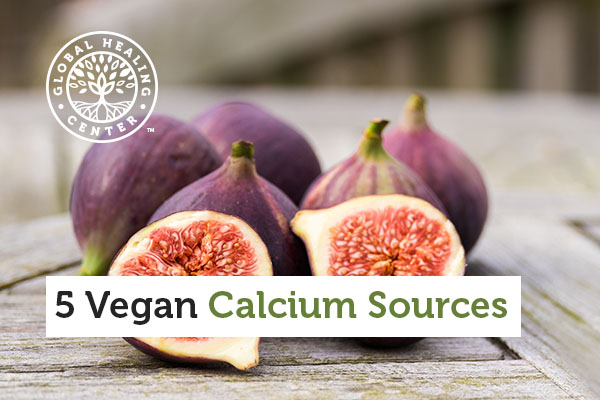
People who are beginning to implement more vegan foods into their diet are usually concerned with the nutritional give-and-take that happens when you exclude certain types of food. Specifically, when it comes to cutting out dairy, most people are concerned with how that will affect their calcium intake. The good news is that vegan sources of calcium certainly do exist and, whereas dairy products may offer calcium in spite of other health concerns (fat content, hormones, production methods), most vegan sources of calcium have few, if any downsides and contain a large volume of other essential vitamins and nutrients that makes your body happy.
As a side thought, it needs to be said that this information isn't just for vegans. It's been reported that over 75 percent of Americans are actually deficient in calcium. This is a concern that has serious consequences and will continue to have serious consequences. Did you know that within the next decade the surgeon general has projected that half the population over age 50 is going to be at risk for osteoporotic fractures?. Hello! America has a nutrition concern and that includes calcium, don't be one of the statistics!
Here are five sources of calcium that are friendly to all, including vegans. Even if you're not vegan, making a conscious effort to include these foods on your plate can make a serious difference in your calcium intake and probably even get you higher than persons who consume dairy (with an added bonus of vitamins C, K, and a truckload of minerals):
Vegan Sources of Calcium
1. Kale
In addition to being a great food-based protector against radiation, kale also happens to offer up 180 mg of calcium per cup. Creighton University in Omaha Nebraska analyzed the calcium absorption in women who drank milk and compared it to women who consumed kale. The women who consumed kale had higher calcium levels than the milk drinking group and researchers advised of the excellent absorbability of calcium from kale. [1]
2. Collard Greens
Collard greens pack a very strong calcium punch, with 1 cup alone containing 350 mg. With the established recommended intake between 1,000 and 2,000 mg daily for an average person, it only takes a relatively small serving of collard greens and other vegan alternatives to meet this criteria. Research has suggested that the bitter taste of some vegetables, like collard greens, is an indication of high calcium content and some animals can pick up on this. In fact, when given the choice between a low calcium vegetable like broccoli, and a high calcium vegetable like collard greens, calcium deprived mice and rats will choose the collard greens. [2]
3. Almond Butter
If the bitter taste of collard greens leaves you unfulfilled, perhaps almond butter will be your answer. In addition to its great taste and raw quality (when purchased in its raw form) just 2 small tablespoons of almond button contains 86 mg of calcium. Almond butter also provides an alternative, not just for vegans, but persons with food allergies to tree nuts, including peanuts. And actually, it's a better option. When compared to peanut or sunflower seed butter, almond butter has significantly more fiber, calcium, and potassium. [3]
4. Figs
Considered to be a treat by many and actually used historically in dessert-styled candy and pastry dishes, figs contain 120 mg of calcium within only ½ cup. If you have not yet tried figs, you are missing out on a nutrient-loaded and energy dense powerhouse of a food!
5. Blackstrap Molasses
Blackstrap molasses can be really handy as a calcium rich ingredient for a number of savory recipes, including baked beans. Two tablespoons of this black gold hold 400mg of calcium!
Adequate levels of calcium help your body properly develop your teeth and bones... everyone knows this. But, calcium is also involved with brain and cardiovascular health. It's relatively simple to enhance your diet with all-natural, vegan-friendly sources of calcium as long as you make a concerted effort to do so. Conscious eating is always important; getting each and every one of the nutrients your body needs to operate at peak performance is a daily habit and it won't happen by accident.
Calcium Supplements
There are many types of calcium supplements available and some are worthless, literally nothing more than ground-up, encapsulated sea shells- beware of their presence. If you need to fill the nutritional gaps in your diet with a calcium supplement, I recommend IntraCal™, my calcium orotate supplement. Calcium orotate is the most absorbable form of calcium and is the only one I recommend if you're truly trying to achieve the benefits of proper calcium levels.
References (3)
- Heaney RP, Weaver CM. Calcium absorption from kale. Am J Clin Nutr. 1990 Apr;51(4):656-7.
- Tordoff MG, Sandell MA. Vegetable bitterness is related to calcium content. Appetite. 2009 Apr;52(2):498-504.
- R. Thomas, S. Gebhardt. Sunflower seed butter and almond butter as nutrient-rich alternatives to peanut butter (PDF). Beltsville Human Nutrition Research Center.
†Results may vary. Information and statements made are for education purposes and are not intended to replace the advice of your doctor. If you have a severe medical condition or health concern, see your physician.







